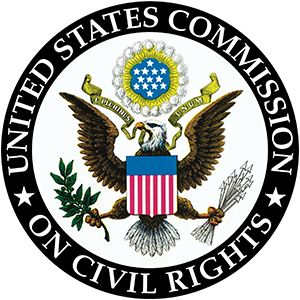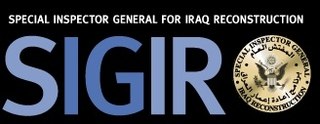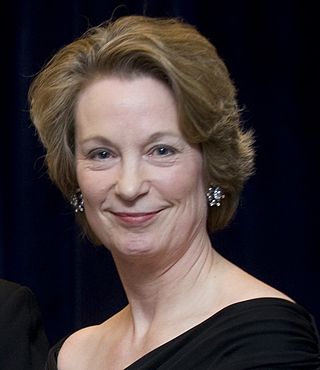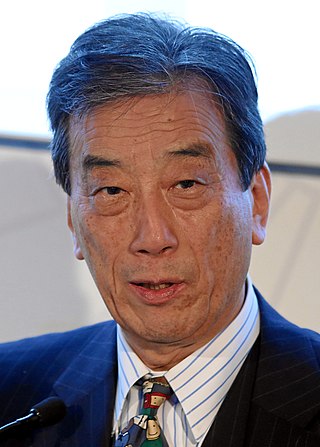
Kofi Atta Annan was a Ghanaian diplomat who served as the seventh secretary-general of the United Nations from 1997 to 2006. Annan and the UN were the co-recipients of the 2001 Nobel Peace Prize. He was the founder and chairman of the Kofi Annan Foundation, as well as chairman of The Elders, an international organisation founded by Nelson Mandela.

The Coalition Provisional Authority was a transitional government of Iraq established following the invasion of the country on 19 March 2003 by the U.S.-led Multinational Force and the fall of Ba'athist Iraq.

Philip David Zelikow is an American diplomat, academic and author. He has worked as the executive director of the 9/11 Commission, director of the Miller Center of Public Affairs at the University of Virginia, and Counselor of the United States Department of State. He is the White Burkett Miller Professor of History at the University of Virginia and was American Academy in Berlin Axel Springer Fellow, in the fall of 2009.

James Charles Greenwood is an American politician in the Republican Party. He represented Pennsylvania's Eighth Congressional District for six terms in the United States House of Representatives.

The U.S. Commission on Civil Rights (CCR) is a bipartisan, independent commission of the United States federal government, created by the Civil Rights Act of 1957 during the Eisenhower administration, that is charged with the responsibility for investigating, reporting on, and making recommendations concerning civil rights issues in the United States. Specifically, the CCR investigates allegations of discrimination based on race, sex, national origin, disability. Since 2021, Norma V. Cantu has served as chair of the CCR.
Congressional oversight is oversight by the United States Congress over the Executive Branch, including the numerous U.S. federal agencies. Congressional oversight includes the review, monitoring, and supervision of federal agencies, programs, activities, and policy implementation. Congress exercises this power largely through its congressional committee system. Oversight also occurs in a wide variety of congressional activities and contexts. These include authorization, appropriations, investigative, and legislative hearings by standing committees; which is specialized investigations by select committees; and reviews and studies by congressional support agencies and staff.

The Office of the Special Inspector General for Iraq Reconstruction (SIGIR) was created as the successor to the Coalition Provisional Authority Office of Inspector General (CPA-IG). SIGIR was an independent government agency created by the Congress to provide oversight of the use of the $52 billion U.S. reconstruction program in Iraq. Stuart W. Bowen Jr. was appointed to the position of CPA-IG on January 20, 2004 and served until its closure in October 2013. SIGIR reported directly to Congress, the Secretary of State, and the Secretary of Defense.

Patricia Lynn Scarlett is a US environmental policy executive and analyst. Until December 2021, she was the Chief External Affairs Officer at the Nature Conservancy. She is a frequent commentator on environmental issues. She was the Chief Operating Officer and Deputy Secretary of the Interior from 2005 to 2009, having previously served as the Assistant Secretary of Policy, Management and Budget from 2001 to 2005. Appointed by President George W. Bush, Scarlett was sworn in as Deputy Secretary of the Interior on November 22, 2005. In 2006 she served as acting Secretary of the Interior between the administrations of Gale Norton and Dirk Kempthorne. While at DOI she chaired the federal Wildland Fire Leadership Council (2004–05). She also co-chaired the First Lady's Preserve America Initiative on historic preservation (2003–08). She also chaired DOI's Climate Change Task Force, which examined the effects of climate change on land, water, wildlife and infrastructure. Scarlett convened and chaired the Department's Cooperative Conservation Working Group, and also represented the Department on an interagency cooperative conservation task force that planned and convened the White House Conference on Cooperative Conservation in 2005. In her management capacities, Scarlett served on the President's Management Council and its executive steering committee.
Steven Kent Metz is an American author and professor of national security and strategy at the U.S. Army War College specializing in insurgency and counterinsurgency, American defense policy, strategic theory, the African security environment, and future warfare.
The Israeli Intelligence Community is made up of Aman, Mossad and Shabak.

The Wisconsin Department of Natural Resources (WDNR) is a government agency of the U.S. state of Wisconsin charged with conserving and managing Wisconsin's natural resources. The Wisconsin Natural Resources Board has the authority to set policy for the WDNR. The WDNR is led by the Secretary, who is appointed by the Governor of Wisconsin. The WDNR develops regulations and guidance in accordance with laws passed by the Wisconsin Legislature. It administers wildlife, fish, forests, endangered resources, air, water, waste, and other issues related to natural resources. The central office of the WDNR is located in downtown Madison, near the state capitol.

The United Nations Peacebuilding Commission (PBC) is a United Nations intergovernmental advisory body of both the General Assembly and the Security Council that supports peace efforts in conflict affected countries. A key addition to the capacity of the international community in the broad peace agenda, it was established in 2005 with the passage of both A/RES/60/180 and S/RES/1645 Rabab Fatima is the incumbent chair of PBC.

Susan Elaine Eisenhower is an American consultant, author, and expert on international security, space policy, energy, and relations between the Russian Federation and the United States of America. She is the daughter of John Eisenhower, and the granddaughter of President Dwight D. Eisenhower.
The Alaska Department of Fish and Game (ADF&G) is a department within the government of Alaska. ADF&G's mission is to protect, maintain, and improve the fish, game, and aquatic plant resources of the state, and manage their use and development in the best interest of the economy and the well-being of the people of the state, consistent with the sustained yield principle. ADF&G manages approximately 750 active fisheries, 26 game management units, and 32 special areas. From resource policy to public education, the department considers public involvement essential to its mission and goals. The department is committed to working with tribes in Alaska and with a diverse group of State and Federal agencies. The department works cooperatively with various universities and nongovernmental organizations in formal and informal partnership arrangements, and assists local research or baseline environmental monitoring through citizen science programs.
The Investigation Committee on the Accident at the Fukushima Nuclear Power Stations of Tokyo Electric Power Company was formed June 7, 2011 by the Japanese government as an independent body to investigate the March Fukushima Daiichi nuclear disaster. The Investigation Committee issued an interim report in December 2011, and issued its final report in July 2012.
Don Drummond, is a noted Canadian economist, having served extensively in the federal Department of Finance Canada, as Chief Economist at Toronto-Dominion Bank and as a scholar at Queen's University. He is known for his wide contributions to public policy in Canada and extensive citation on economic issues.

National Diet of Japan Fukushima Nuclear Accident Independent Investigation Commission or NAIIC is the commission to investigate the background and cause of Fukushima Daiichi nuclear disaster formed by the statutory law enactment by Diet of Japan on 7 October 2011 and started with the first commissioning meeting was held in Fukushima City, Fukushima Prefecture. The commission is scheduled to issue the report in six months on investigation and to propose the policy to reduce and prevent future accident and reduce damage on the nuclear power plant in Japan.
The Bipartisan Commission on Biodefense, formerly known as the Blue Ribbon Study Panel on Biodefense, is an organization of former high-ranking government officials that analyzes US capabilities and capacity to defend against biological threats. According to the Commission's mission statement, the organization was formed to "provide for a comprehensive assessment of the state of U.S. biodefense efforts, and to issue recommendations that will foster change."

A Blue Ribbon Commission on America's Nuclear Future was appointed by President Obama to look into future options for existing and future nuclear waste, following the ending of work on the incomplete Yucca Mountain Repository. At present, there are 70 nuclear power plant sites where 65,000 tons of spent fuel is stored in the USA. Each year, more than 2,000 tons are added to this total. Nine states have "explicit moratoria on new nuclear power until a storage solution emerges". A deep geological repository seems to be the favored approach to storing nuclear waste.

The National Biodefense Strategy Act of 2016 is a bill introduced in the United States Senate by U.S. Senator Ron Johnson (R-Wisconsin). The bill would amend the Homeland Security Act of 2002 by requiring the government to change its current policy and programs to coordinate and improve biodefense preparedness. Johnson is the current chairman of the Senate Committee on Homeland Security and Governmental Affairs.












